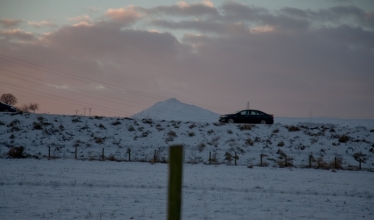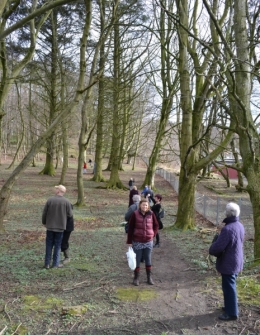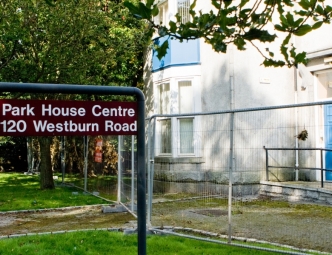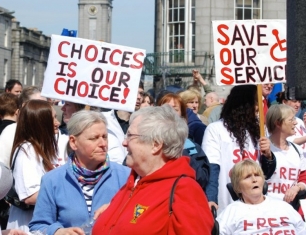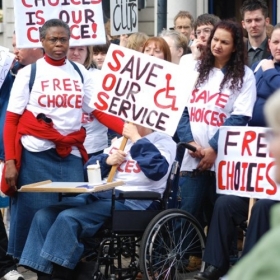Policing in Britain is changing, and not for the better. Almost every newspaper seems to carry a new tale of corruption, custody death, wrongful arrest, over-policing, wrongful stop and search, ignoring reports of crimes, criminalising young children and/or institutionalised racism within the police are some of the worrying developments. When police are caught in misdeeds, sometimes of enormous magnitude, there seems to be immunity – they are the police after all.
The suggestion is not that all police are corrupt. The questions that need to be addressed include the increased powers the police have been given, often under the sweeping broad brush of ‘preventing terrorism’, how they are doing their job, and what the scope of investigation should be. Additionally, Police Scotland seems to be granting itself the right to carry guns on routine patrols.
This has happened in the Highlands without recourse to elected officials and institutions, let alone seeking a mandate from the people who are largely against this change. There are far too many problems for them to go unanswered or the situation to go unchecked. ‘Protect and Serve’ is becoming a thing of the past. We need to talk about the police. By Suzanne Kelly.
 Introduction.
Introduction.
This series will look at some recent police scandals, both high and low
profile.
Police decisions, police powers (and the misuse of same), institutionalised racism, custody, cover-ups and illegal activities will be addressed.
This first in the series will look at what should have been a simple, brief (less than a few hours in duration) bright and breezy event in Aberdeen’s Union Terrace Gardens: the Queen’s Baton Commonwealth function.
This is on the one hand a very minor chapter in the problems we have with the police. On the other hand, it illustrates what some of the underlying serious issues are.
A walk in the park?
On 30th June 2014 Aberdeen was filled with police and private security. If you tried to go about your lawful business on Union Terrace such as going into your hotel or a restaurant, you were prevented from doing so before your ID and your story was checked out by private security or police. High steel partitions blocked anyone from looking into Union Terrace Gardens.
If you wanted to see into the gardens, you may as well have tried to look over the Berlin Wall. If you wanted to go in the gardens – which are common good land, owned by the people and merely managed by the city on the day? If you had a pet, a drink, or heaven forbid a plastic folding chair, you would not even have been allowed to queue in the serpentine crowd barrier maze at the only entrance that hadn’t been blocked off.
I witnessed people turning away in disgust and disappointment. What was going on?
This level of security was laid on to protect the Queen’s baton, a former commonwealth winner, some musicians and local dancers for a two hour concert. Some would say this was slight overkill. On another level, this was a display of police power over the law abiding individual, a removal of basic rights without sufficient cause, and an expenditure that was far from justified.
Fun for all the Family?
Aberdeen City Council’s press announcement started out cheerfully enough:
“An exciting programme of dance, music and song will showcase the cultural vibrancy of Aberdeen as the Queen’s Baton Relay’s journey across the city culminates with an end-of-day celebration in Union Terrace Gardens, on Monday 30 June.” http://www.aberdeencity.gov.uk/CouncilNews/ci_cns/pr_QBReveningcelebration_250614.asp
The press release soon gets ‘round to the details of what you are going to give up, like it or not, for this brief event and other concurrent events such as an international market and a parade or two (my comments in square brackets):
“To support the safe management and delivery of this event, a secure event arena will be constructed in and around Union Terrace Gardens from Sunday 29 June. On Sunday [29 June] the east side footway on Union Terrace will be closed to pedestrians to allow the construction of temporary fencing to ensure public safety, to protect the balustrade surrounding the gardens and to create a corridor for emergency services.
[This temporary fencing/secure arena was a steel curtain over 6’ high – cost: unknown at present. Why does a little local event need a secure arena? In the event, it was clear that it didn’t. The city made a meal out of claims the balustrades around the park are unsafe during a referendum on building a horrendous giant, purposeless granite ‘web’ over the gardens. Thankfully this £140 million pound plan eventually met its match. The city finds the balustrades dangerous when it suits them; they are otherwise unguarded, repair specifics remain unknown, and the city happily allows market stalls in the arches directly under the deadly balustrades.]
“…In the interests of public safety, the pavement on Union Terrace will be available for through foot traffic only – no viewing will be allowed from this area. [First of all this was untrue: No one was allowed to walk down Union Terrace: it was completely shut off for free access. I witnessed people being asked to explain why they wanted to walk down this hotel and restaurant lined street. It had been turned into an ‘overflow area’ – which proved to be wholly unneeded. ]
“Union Terrace Gardens will be closed to the public on Monday 30 June to allow preparation work including the construction of a stage. It will re-open at 5pm. [it is a large park; there would have been every chance to have people use the park, but avoid the stage-construction area. But that is far from the worst unnecessary use of muscle in this poorly managed event].
“To ensure public safety the following temporary road closures will be in place [a host of road closures were done for some parades on Union Street lasting a few hours, the baton ‘celebration’ caused closures spanning at least two days for an event which lasted a few hours, and for a market. How public safety would have been jeopardised is unclear. What is clear is that ‘to ensure public safety’ is now a stock phrase used whenever the police want carte blanche to carry out any operations, big or small.]
“The public is advised that:
- there will be no disabled parking in the gardens but disabled spaces will be available at the Denburn car park on a first come, first served basis; [it is just as well the event was so very poorly attended]
- there will be a disabled viewing area near the front of the stage on a first come, first served basis;
- both auditoriums in the gardens and on Union Terrace are standing only – no chairs or picnic style furniture will be allowed; [a great boon to the infirm; did the police fear a plastic chair fight? Was the performance of a local choir going to be so inflammatory that rioting would break out?]
- No animals including dogs except guide dogs will be allowed in Union Terrace Gardens or on Union Terrace during the event; [People were turned away who had dogs with them, they hadn’t seen the city’s press release and sought to use the gardens as per normal. They were in violation of now law, but this arbitrary whim stopped them exercising their rights. I do like this phrase though ‘no animals including dogs’: one might think it was given that ‘no animals’ included dogs. One might also wonder if someone had planned to take their Shetland pony, cats or goldfish.]
- the public drinking byelaw in Scotland has not been relaxed for the purposes of this outdoor, family event so no alcohol will be permitted within the event arena;
- keep your belongings safe and close to you and ensure handbags are fastened securely;
- the weather is changeable so remember to wear appropriate clothing; [for those Aberdonians who need nannying for a two hour event in the city centre]
- there are no catering facilities at the evening celebration; [off topic, but this was hardly festive, was it?]
- Aberdeen City Council, Police Scotland and event stewards reserve the right to refuse entry to anyone deemed unfit to participate safely in the event. [no explanations needed; the police and private stewards could have refused anyone entry for any reason at will.]”
The business of security.
It would seem these days that no event in Aberdeen can take place without crowd barriers, private security stewards and a host of police on foot, in cars and vans, and on horseback – and a stack of rules. It is the same in some other cities as well, but this over-policing is very much an Aberdeen phenomenon.
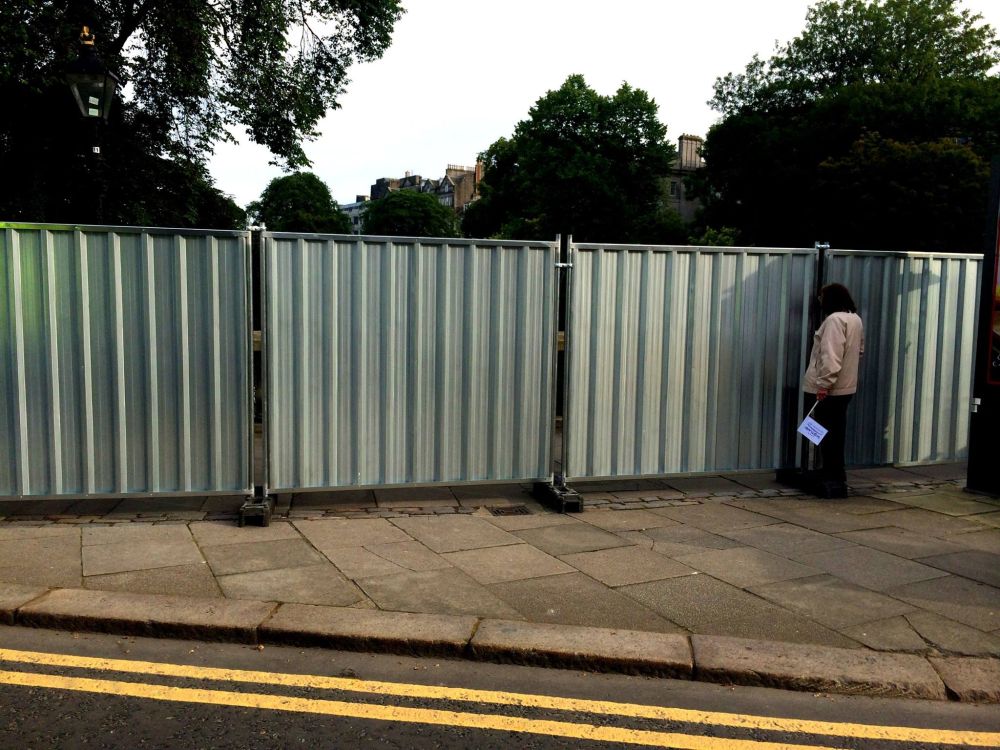 It is no surprise that the International Festivals for literature, film and performing arts thrive in Edinburgh, not Aberdeen: you would be hard put to have our police allow swarms of tourists to wander vast areas, drink at tables outside pubs and restaurants in busy streets, crowd small public squares and in general allow crowds to freely move.
It is no surprise that the International Festivals for literature, film and performing arts thrive in Edinburgh, not Aberdeen: you would be hard put to have our police allow swarms of tourists to wander vast areas, drink at tables outside pubs and restaurants in busy streets, crowd small public squares and in general allow crowds to freely move.
Local residents may remember the enjoyable Jubilee Tea Party (thanks to the Bothwell family) in Union Terrace
Gardens.
There was a good deal of rain, but lots of music, food and fun: over 3,000 people attended – more than this brief event by all accounts, as the Union Terrace overflow area went virtually unused. There have been other recent events that went off smoothly without as much security.
What entities were responsible for agreeing to the level of security hired in, the police man-hours approved, the steel barrier erected the night before, the decision to turn Union Terrace into an overflow area for 8000 people? Who approve the budget, and how much was actually spent?
One thing is certain, whether on policing, police overtime, and/or private security steward costs: some stakeholders must have made a fair bit of money for this overly-secured event.
Private security firms are gaining more and more foothold in the public policing sector – running prisons, providing security, escorting prisoners to trial and running young offenders homes: there are millions to be made in the larger arena of private security, and the outcomes are often not good ones. More on that in a future piece.
Another Freedom of Information Failure.
Not a single entity involved in planning the baton event is willing to put its hands up and say how the security arrangements grew so gargantuan, how much of the taxpayer’s money was wasted, how it was agreed to temporarily take away our rights to go about our business and walk our streets or use our gardens.
The City Council, Police Scotland, and the Games organisers were all asked to supply their answers to straightforward questions about budget, numbers of police and private security used, how the private firm was chosen, and so on. Not one of these entities is letting the requested information out.
What correspondence took place to allow this event to be blown out of all proportion? Aberdeen City Council at present finds it far too wide a question to answer. They were asked questions in mid-July, and there has been no movement from their 24 July position:-
“Under our duty to advise and assist, we would like to take this opportunity to advise you that the following question will likely be refused by ACC under Section 12 – Excessive Cost of Compliance – of the FOISA, as the relevant services are concerned that the scope of this question would likely exceed the £600 limit.” (Email from ACC to S Kelly)
The City has recently admitted in a separate FOI request that it has NO document management policy in place, despite there being a statutory duty to have one. Lack of suitable procedure in place notwithstanding, precisely how a half-day event would have generated so much paperwork that in this electronic age it is not possible to supply the relevant correspondence for less than £600 is hard to understand.
Still, my group and I saw at least 20 police of different ranks, several cars and vans, and at least 20 private security guards. If the lowest-paid police officer is on £ 23,493 pa , the lowest-band for sergeants is £ 36,885 (£768/week), and the lowest pay for an inspector is £ 47,256 (£984/week), we can do some estimations. If that lowest paid officer was on an hourly rate it would be c. £13.97 (£489/week).
Even assuming no overtime rate was paid, then if 20 police spent say 2 hours before the event, 2 hours at the actual event, and one hour after the event (and that’s being rather conservative), then 20 officers at £13.97 per hour for 5 hours equates to £1397 in salary.
If they had one sergeant and one inspector, at 5 hours that would be £105 for the sergeant and £140 for the inspector. This minimum total salary figure would then be £1642. The odds are that the real cost will be far, far higher for the police – once we’re finally told what it is.
The police were once forced to disclose that it cost the taxpayer thousands when Donald Trump cancelled a visit to Aberdeen: the actual cost of police escort from the airport to a hotel or his Menie Estate therefore must be considerably more. However, the police have never had to explain this further. How the police manage to skirt many Freedom of Information Requests will be looked at in a future article in this series.
Aside from the cost, it is undeniable that police were milling about to ensure the safety of a stick and some performers from threats such as pet dogs and plastic chairs, while elsewhere in the city crimes go uninvestigated, and people are told ‘there is nothing we can do’ by police when it comes to investigating thefts. Something is wrong. We do need to talk about the police.
Attendance estimates? An 8,000 over-estimate
On the day, people were harassed for trying to get into restaurants and the hotel on Union Terrace. The police had set up an arbitrary no-go zone.
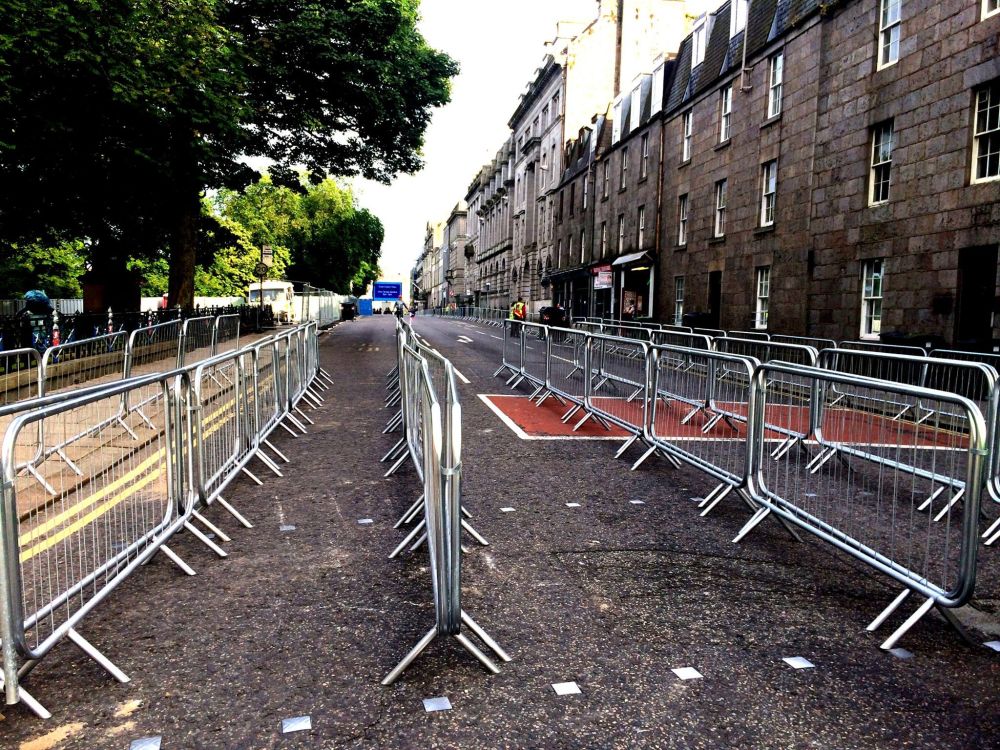
This was, one has to assume, based on the bizarre projection (god knows made by whom) that some 10,000 people would want to listen to Giz Giz, and see the stick.
Apparently the gardens would close after hitting 2,000 attendees, and up to 8,000 people would be so eager with anticipation for this event that they would want to fit into the giant metal fence enclosure created on Union Terrace with a giant screen on which they could see that baton, or listen to those singers.
It would be interesting to know how those claiming their desire was ‘to ensure the public safety’ thought corralling up to 8,000 people in a giant outdoor wire pen with only one access point was a great idea, or that having only one entrance to the garden open was clever.
One might have thought that some of the dozens of under employed police and guards near HMT could have manned an extra entrance or two rather than standing around idly.
It would be interesting to know how much the giant screen [which Orwell would have shaken his head at] cost the taxpayer as well.
The group I was with on the perimeter of this circus peered down into that veritable cage, and didn’t see a single person. We asked one of the private stewards (who seemed as bemused as we were and agreed it was overstaffed as events go) about it; they had a counter in their hand. When asked how many people had gone into the overflow area, by the time the event was more than half finished, the steward replied: 15.
Fifteen people in the overflow area; and all around it probably as many more were trying to exercise the freedoms the police had decided to take from them to stage this non-event. Even those who enjoyed the event would have to admit this was a hugely over-policed, vastly overly regulated waste of resources, namely taxpayer money.
But it served its purpose. Police Scotland had succeeded in:
* demonstrating their absolute power over the legitimate rights of ordinary citizens trying to go about their normal, legal business;
* overestimating greatly the crowd size and security needed – and getting the stakeholders (ACC, games organisers) to allow them to run the show, serving to increase their perceived power and importance;
* making decisions impacting on the public purse without the need to explain or justify their obvious overestimation of any possible rational risk assessment;
* having a hand in recommending private security stewards which were vastly overstaffed on the day;
* making those who did want to attend the event comply with unnecessary, draconian demands and ingraining obedience above freedoms;
* having a hand in unnecessary road closures and having their advice taken, seemingly without question by the local organisers;
* exercising an apparent desire to take more control than necessary from the public, and having this go unquestioned.
Are the police seeking to get more and more control over our movements, or did they genuinely think that terrorists were going to come to Aberdeen to make a show of power at an event of nearly no significance? If so, what was the evidence?
If security was their one and only goal, which I am sure is the argument they would make, then you have to wonder about the wisdom of corralling people into enclosed spaces with only one access point.
If anything like 4,000 people had gone into the Union Terrace enclosure, and a problem had erupted, it would have resulted in serious injury from any panic as people sought to get out of the space: this is a very basic safety observation, backed up by past events – and yet not one the police identified. Safety? To some it might seem more like exerting control for the sake of it.
As someone put it to me on the night, ‘they do take the jolly out of everything.’
This has been a brief look at excessive use of muscle and expenditure at our expense. In fact, some of it might seem comical in a way. The following articles in this series will seem far less so.
- Comments enabled – see comments box below. Note, all comments will be moderated.
[Aberdeen Voice accepts and welcomes contributions from all sides/angles pertaining to any issue. Views and opinions expressed in any article are entirely those of the writer/contributor, and inclusion in our publication does not constitute support or endorsement of these by Aberdeen Voice as an organisation or any of its team members.]

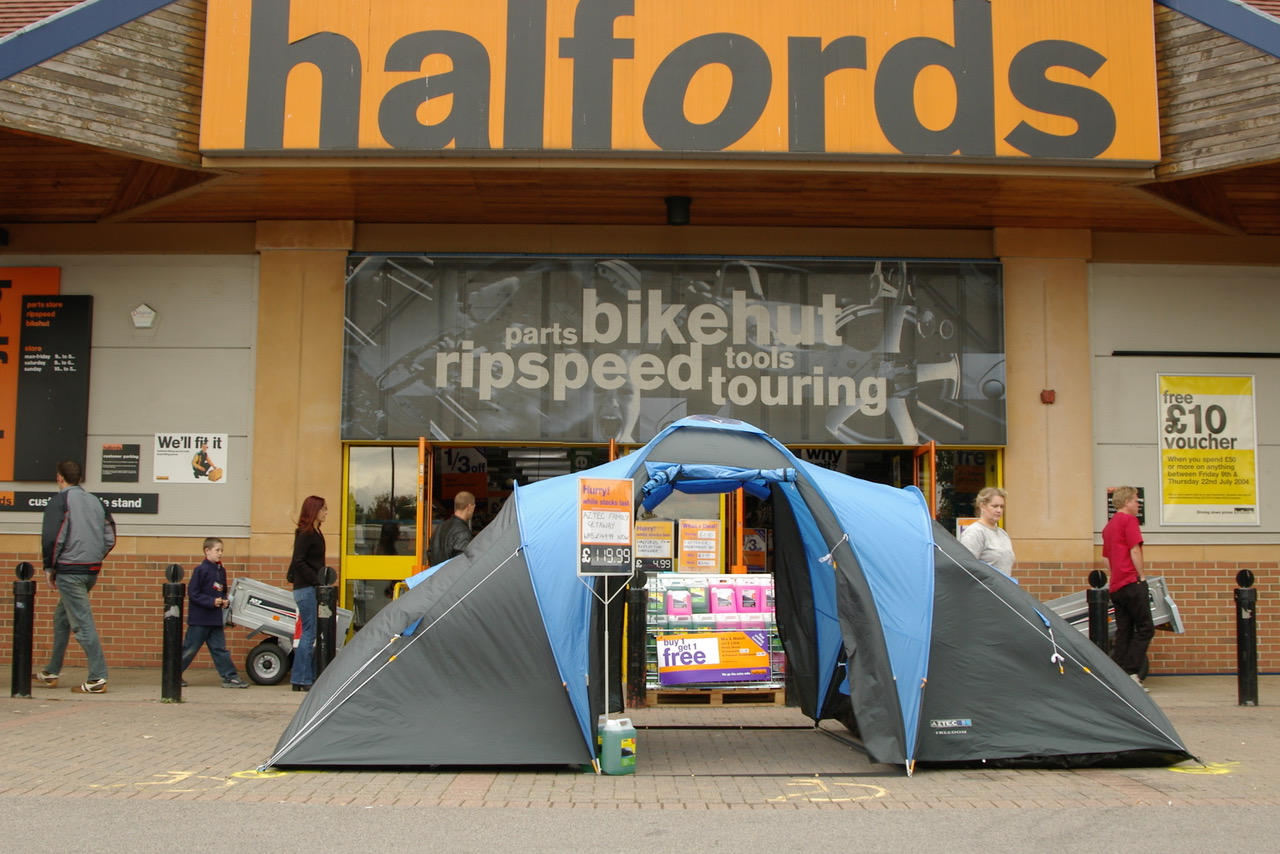
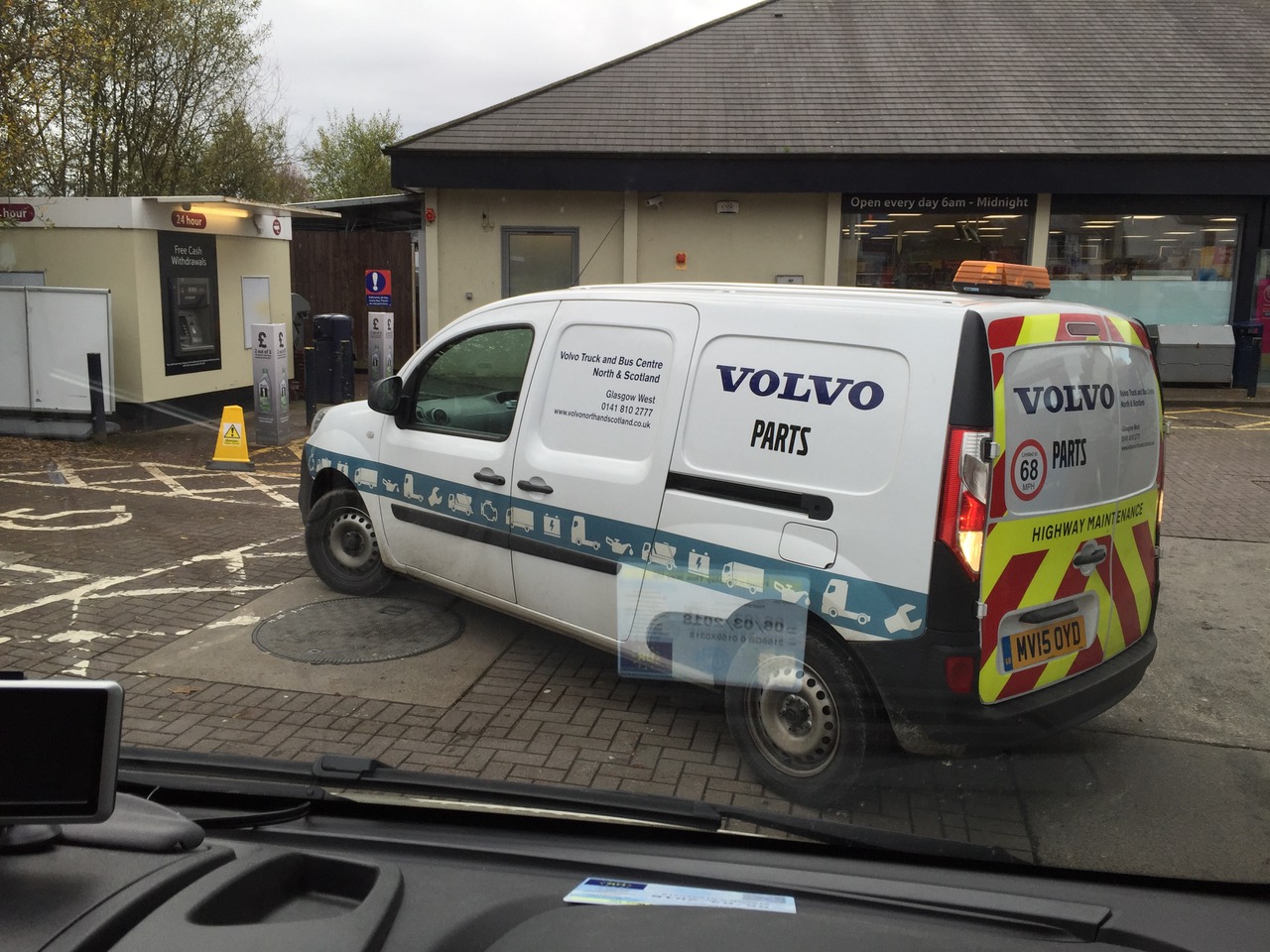 Some countries don’t suffer from the same issues.
Some countries don’t suffer from the same issues.


